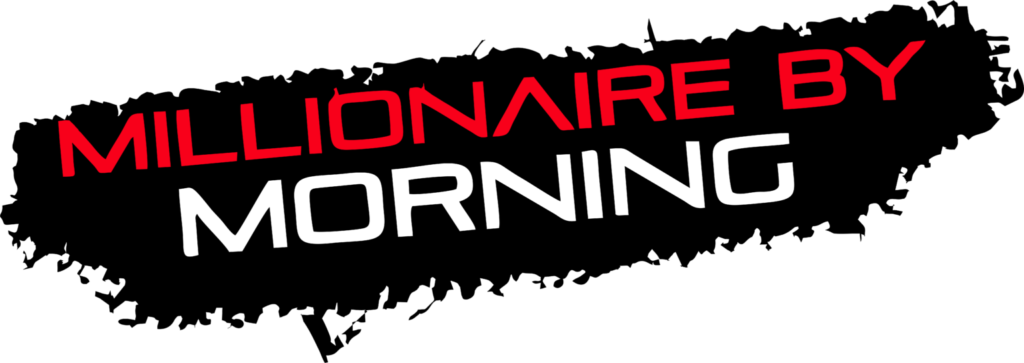
Baby boomers, the generation born between 1946 and 1964 currently own 40% of small businesses in the US. With 10,000 baby boomer business owners retiring every day, the younger generations have the unprecedented opportunity to buy their flourishing businesses or franchises.
The retiring generation is looking for ways to cash in their established business. Thus, around 12 million private businesses will be available for acquisition in the next few years. Aspiring entrepreneurs who are interested in the acquisition of reputable businesses can make the most of these opportunities.
Buying a successful business has its unique benefits. And retiring business owners want to ensure they hand over their legacy and life’s work in capable hands. So, they often provide expert guidance to new owners from their years of experience and market insights.
So, ready to learn more about business acquisition opportunities?
Table of Contents
ToggleWhy Buy an Existing Business from a Retiree?
With the youngest of the baby boomer generation reaching retirement age, many business owners want to relax in their later years. So, they want to retire from their businesses and get funds by selling off their established ventures.
As an entrepreneur, starting a new business is often a challenging idea. You need to choose a good idea, conduct market research, build your team, promote your brand, and attract the ideal audience.
On the other hand, you can avoid these obstacles by buying a business from baby boomer business owners retiring. So, why buy an existing business from a retiree?
The cost of buying an established business is relatively lower than building a business from scratch. Also, it won’t take a long time to get your business working and generating revenue and profits. With a trained and experienced workforce ready, you don’t have to spend time hiring the best talent and training them for the job.

The established business must already have goodwill. Its customer base that trusts the business will help you make your business a success.
Further, there’s no need to spend time figuring out how to do everything from scratch. You can hit the ground running since the business will already have processes and systems figured out. And you will have an experienced team ready to take care of these tasks.
Lastly, the former business owner may have decades of experience successfully running the venture. Many of them agree to provide consultation to the new owner for a limited period. When negotiating the acquisition terms, you can discuss potential consultancy and training. This can help you immediately make your newly purchased business profitable.
To be precise, you can enjoy the following benefits by purchasing a reputable business from baby boomer business owners retiring:
- Lower initial investment
- The business already has an established brand and customer base
- You will have an already trained workforce
- Systems and processes are in place
- You need not wait for months or years for the business to breakeven and become profitable
- It’s easier to secure funding
- Long-standing supplier relationships
- Easy transition through the previous owner’s guidance
- Reduced risk of business losses
Baby Boomer Businesses for Sale: Steps to Buying an Existing Business
Entrepreneurs interested in buying an established brand can look into baby boomer businesses for sale. But make sure you carry out due diligence to ensure the business is the right fit for you.
From checking assets to validating trademarks, analyzing supplier relationships, reviewing financial statements, and checking for legal issues, you need to pay attention to the process. Also, make sure the agreed price of buying the business is competitive.
Now, let’s take an in-depth look at the process of buying an established business from a retiree:

Devise a Plan
The first and foremost task is to prepare a plan. You should know the reasons why you want to acquire an existing business instead of establishing one from scratch.
Also, it’s a good idea to ask yourself what type of business you want to buy. You may need to look into different business structures. You may have specific requirements about business performance – whether it should be highly successful, generating normal profit, or should be a failed business that you can revive.
What about the size of the business? Should it be a business with a store at a single location? Or do you want a larger business operating at multiple locations? Once you have decided on a budget, you will find it easier to make the decision.
Further, do you have any particular industry in mind? You can better manage your newly purchased business if it aligns with your experience.
When preparing a plan, you should write down your future plans too. This includes the plan to retain existing customers and grow your business.
Conduct Market Research
Before making the buying decision, it’s critical to conduct comprehensive market research. You should have a good understanding of the industry and niche the business operates in. Also, you should look into competition in the market and market trends.
It’s a good idea to evaluate the demand for services and products the business that you’re interested in, offers.
An effective way to gather this information is by networking with people and business owners who have been in the industry for long. You can also chat with customers of the business and attend conferences to learn more about the industry and niche.

Form Connections in the Industry
Planning to buy baby boomer-owned businesses? Then you should build connections and network with industry influencers. For this purpose, attend industry events and talk to experienced professionals. Forming lasting connections with accountants, business advisors, and attorneys in the industry usually pays off.
At this stage, you may have an idea about what type of business you intend to buy. Your network can help you find suitable baby boomer businesses for sale.
When a business owner wants to retire, they may share the news with people they know before officially advertising the sale. Your connections can help you stay one step ahead by informing you about the offer before it reaches a business marketplace. So, you can make an offer early and possibly get a good deal.
Don’t Forget Due Diligence
Before finalizing the deal to buy a business from a retiring baby boomer business owner, do the due diligence to know what you’re getting into. It’s important to ask the seller for a business paper trail in the form of relevant documents.
Here are some of the important documents you should review before acquisition:
- Company’s business plan
- Financial statements
- Credit report
- Historical tax returns
- Legal contracts and agreements
- Past or ongoing lawsuits
- Employee information
- Customer information
- Insurance documents
- Company’s patents, copyrights, and trademarks
- Licenses and permits
By reviewing these business records, you can identify and avoid potential risks.
Due diligence for corporations and LLCs tends to be a more complex and lengthy process. That’s because you need to check the certificate of good standing, operating agreement, bylaws, and other documents. You can hire experienced legal and business advisors to minimize the hassle.

Analyze Market Competition
Launching a new business in a highly competitive area is quite a risky move. The same goes for buying an established business.
If the market is heavily saturated, you may struggle to take it forward even if the business is currently doing well. This is why it’s a smart move to analyze the market and competitors before approving the acquisition.
You should conduct market research to learn about your potential competitors. If possible, schedule interviews with a few existing customers to find out why they prefer buying from the business you are interested in. Then you can carry forward the legacy of the business and create a plan focused on its competitive edge.
Create a Plan to Take the Business Forward
You have found a profitable business available for sale. The due diligence process showed that the business is debt-free and has no lawsuits filed against it. It’s a good fit for you since you have experience in the field.
So, what’s the next step?
Before business is transferred to your name, you need to think about the future. What would be your strategy to make it more successful and drive it in the right direction?
We would recommend you to create an action plan. You may need a new mission statement along with short-term and long-term goals. Ask yourself what you bring to the table and how you can use your skills and that of your team to generate profits.

Convince the Seller
The former business owner spent many precious years of their life to build the business. So, they tend to be more interested in selling their business to someone who values their life’s work. Instead of private equity firms, they are more likely to sell their business to passionate entrepreneurs who can carry forward their legacy.
So, make the most of this opportunity and convince the retiring baby boomer business owner that you are a suitable choice. During communication, sincerely convey that you share the same drive and ambitions and have what it takes to successfully run a business.
It may sound sentimental. But when a person dedicates decades of their lives to their business, they would want to pass it on to someone who will cherish it.
Create a 100-Day Plan
While waiting to take control of the business, utilize this time to draft a 100-day plan for your new business.
Think about how you will go about running the business. You may want to make some big changes, but during the first few months, it’s best to focus on understanding how everything works. Then based on your observations, address the issues and improve processes.
You should think about your role in the company. How you will get familiar with the workforce and create KPIs to measure their performance. Create a plan to engage with the customer base and identify new opportunities to expand operations. Also, review the financial resources available.
Patience is Key
The process of transfer of business ownership is a time-consuming process. You may be impatient to take control of the business after signing the acquisition/purchase document. But the actual transfer takes time.
So, be patient. But stay in touch with the other party to stay up-to-date with developments or potential issues.

Baby Boomers Giving Back to Society
The baby boomer generation tends to possess a strong desire to give back to the community. Whether it’s by building a financial legacy or volunteering, they are looking at creative ways to do so.
Their spirit to take on new challenges is still alive. Therefore, you may notice many older people joining charities and supporting important causes.
Although a large number of baby boomer business owners are looking forward to retiring, many of them are willing to stay connected to their respective industries. And one way to do it is by taking up an advisory role. This way, they can enjoy their retirement years while providing consultation to businesses through part-time roles.
Despite taking retirement from a full-time business role, they are aware of their influence in their industry. Thus, they can support younger entrepreneurs through mentorship and guidance. The younger generation can greatly benefit from their experience and learn a great deal about establishing a successful business.
An average baby boomer has a net worth of $206,700. This is approximately 9 times higher than that of an average millennial.
Aside from mentorship, baby boomers can also offer financial support to millennials and Generation-Z entrepreneurs. They are generally on the lookout for investment opportunities to increase their wealth and generate passive income sources. Thus, many retiring and already retired business people are willing to invest in businesses owned by younger entrepreneurs.
So, it’s a smart idea to tap into this demographic to get additional financing for your business entity.
Furthermore, you can’t ignore the crucial role of retirees in supporting new and established businesses as a customer. They hold 70% of US disposable income and spend $548 billion per year. So, they can prove to be extremely valuable clients for businesses across different industries.

Conclusion
Purchasing a business from a retiree offers compelling advantages as compared to starting anew. You step into a venture with loyal customers, a recognized brand, available funds, and the guidance of the retiring owner.
Nonetheless, like any business endeavor, thorough research, due diligence, and market understanding are essential to ensure that the opportunity aligns with your goals.
